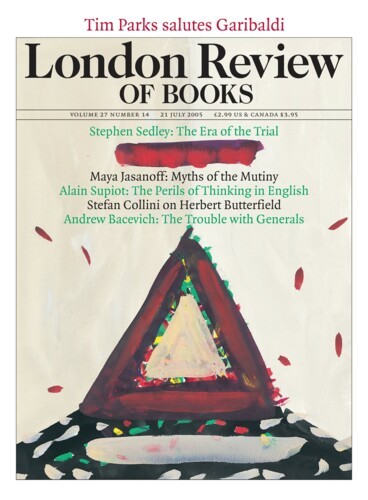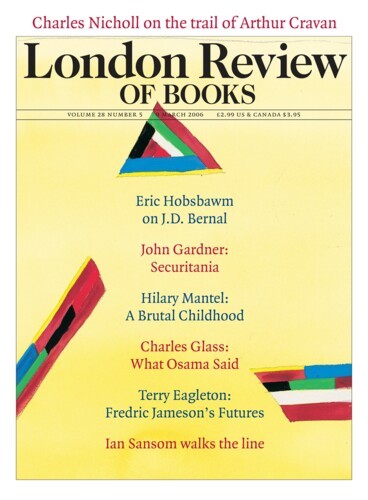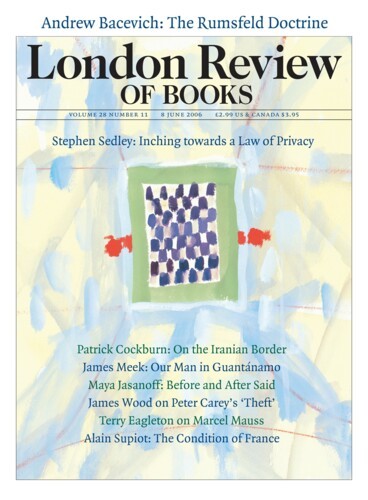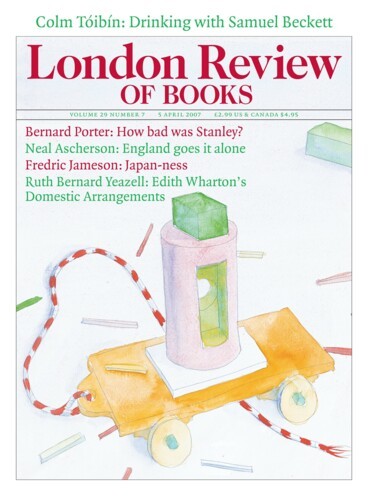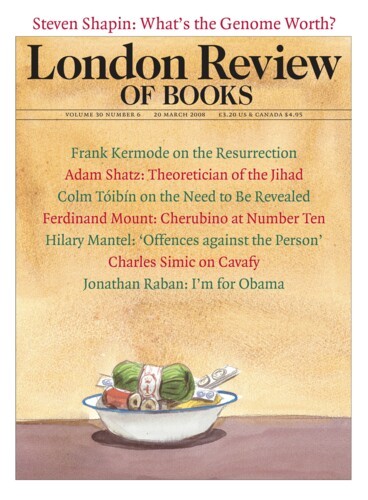Secret Signals in Lotus Flowers: Myths of the Mutiny
Maya Jasanoff, 21 July 2005
“Tucked away in the lanes of Old Delhi, not far from the Red Fort of the Mughal emperors, sits the little visited Anglican church of St James, consecrated in 1836. With its Renaissance-style dome and campanile, and painted a cheerful lemon, this church would not look out of place in Italy. In Delhi it is an oddity, as was its founder, the swashbuckling military adventurer James Skinner, who built it ‘in fulfilment of a vow made while lying wounded on the field of battle’. (Skinner’s equally remarkable contemporary Begum Samru – a Kashmiri dancing-girl turned army commander – built a Catholic church in similar style at Sardhana, with two Wren-like spires flanking the dome.) Skinner did not come seamlessly to Christian piety: half-Scot and half-Rajput, he never visited Europe, began his career in the service of the Marathas, and sired numerous part-Indian children by (it was said) 16 wives and mistresses. In a small yard outside the church, members of his multi-ethnic clan lie buried. Some of their tombs have crosses on top and epitaphs on the side in Persian – memorials to a period in Anglo-Indian history when European and Eastern cultures comfortably converged.”
